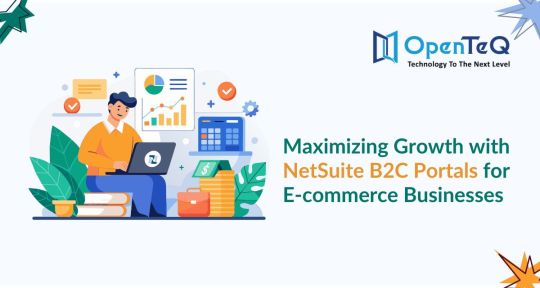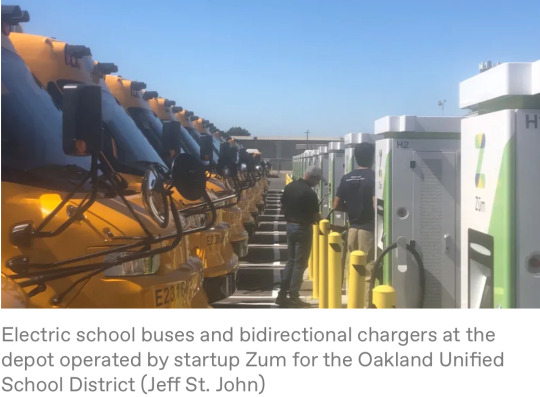#Offshore Development Partner
Explore tagged Tumblr posts
Text
The Potential of Blockchain Technology in Healthcare
Imagine a healthcare system where your medical records are secure, easily shared, and completely under your control. That’s the potential of Blockchain Technology! Forget the complicated stuff about money, Blockchain is like a super secure online filing cabinet for your health info. This means faster treatments, better research, and even fighting fake medicines! We’ll explore how this amazing technology can transform healthcare, making it simpler, safer, and more efficient for everyone. So, buckle up and get ready to discover the future of healthcare!
Understanding Blockchain
Think of Blockchain as a digital ledger that securely records transactions. It operates like a chain of blocks, each containing information and linked together using cryptography. What makes it unique is its decentralized nature, making the data within the blocks tamper-resistant.
Now, let’s dive into how Blockchain is set to revolutionize healthcare.
Fortified Data Security
In healthcare, safeguarding patient records is crucial. Blockchain encrypts each block, and access is controlled by private keys, ensuring patient data remains confidential and unaltered, mitigating the risk of unauthorized access.
Effortless Interoperability
Healthcare systems often struggle with interoperability, hindering smooth information exchange. Blockchain offers a solution by providing a decentralized platform for seamless data sharing. This means healthcare providers, insurers, and patients can access and share information effortlessly, fostering better-coordinated care.
Streamlined Clinical Trials
The process of clinical trials is essential but often complex. Blockchain simplifies and accelerates this process by providing a transparent and unchangeable record of trial data. This ensures data integrity and facilitates collaboration among researchers, making healthcare solution development more efficient.
Transparent Supply Chain Management
Ensuring the authenticity and safety of pharmaceuticals is a major concern. Blockchain can be used to track the entire supply chain of medications, from manufacturing to distribution. This transparency helps in identifying and eliminating counterfeit drugs, ensuring patients receive genuine and safe medications.
Smart Contracts for Seamless Transactions
Blockchain introduces smart contracts — self-executing contracts with terms written into code. In healthcare, this can automate processes such as insurance claims, reducing administrative overhead and minimizing the risk of errors or fraud.
Conclusion
Blockchain technology is reshaping healthcare by securing patient data, fostering research collaboration, and streamlining transactions. The decentralized and tamper-resistant nature of blockchain ensures the security of health records, while transparent transactions enhance research efficiency. Smart contracts and transparent ledgers simplify healthcare transactions, reducing costs and errors.
To fully harness these advantages, partnering with a specialized Blockchain Development Company Like Synsoft Global is beneficial.
Synsoft Global, a top-rated Blockchain development company in India, specializes in Ethereum Blockchain development. Our expertise includes creating decentralized applications for clients in the USA, Europe, and the UAE.
Consider us as your Offshore Development Partner for exceptional services.
#synsoft global#blockchain developers team#blockchain development company#blockchain developer#offshore development partner
0 notes
Text
Partnering for Success: Key Factors to Consider in Offshore Software Development

Introduction
In an increasingly globalized and digital-first world, businesses are under constant pressure to innovate quickly, efficiently, and cost-effectively. Offshore software development has emerged as a strategic approach to meet these goals, allowing companies to leverage global talent, scale faster, and maintain competitiveness. However, the success of such partnerships depends on making the right choices.
Whether you're a startup or an enterprise, working with an offshore partner can unlock tremendous value—provided you know what to look for. And if you’re based in a dynamic hub like New York, collaborating with a custom software development company in New York can act as a strategic bridge between your business vision and the offshore execution team.
In this blog, we explore the essential factors to consider when choosing and managing an offshore software development partnership to ensure alignment, transparency, and long-term success.
The Rise of Offshore Software Development
The concept of outsourcing software development is not new, but it has evolved significantly. Today’s offshore development isn't just about cost savings—it’s about:
Accessing specialized skills
Accelerating time-to-market
Driving innovation through global collaboration
Enabling round-the-clock productivity through time-zone advantages
Leading custom software development companies in New York increasingly integrate offshore teams into their delivery models to enhance agility and offer better value to clients.
\
Why Offshore Development Makes Business Sense
Offshore development has become a viable strategy for companies aiming to:
Minimize operational costs
Scale engineering teams quickly
Focus on core business activities
Access niche technology stacks or domain expertise
Speed up product launches
The best software development company in New York will help you assess the risks and rewards of going offshore while offering local project management to ensure smooth collaboration and accountability.
Key Factors to Consider in Offshore Software Development
1. Clearly Define Your Goals and Requirements
Before engaging with any offshore team, define what you want to achieve:
Are you building an MVP?
Are you extending your current team?
Do you need long-term maintenance or ongoing development?
A well-articulated vision ensures that both your local and offshore partners are aligned. An experienced software development company in New York can help you translate business goals into clear technical requirements and development roadmaps.
2. Choose the Right Offshore Partner
Not all offshore vendors are created equal. When evaluating potential partners, consider the following:
Technical expertise: Do they specialize in the technologies you need?
Industry experience: Have they worked with businesses in your vertical?
Reputation: What do client testimonials and case studies say?
Scalability: Can they grow with your business?
Working with a top software development company in New York ensures your offshore partner has been thoroughly vetted and meets high standards of delivery and accountability.
3. Time Zone Compatibility and Communication
One of the biggest challenges in offshore development is navigating time zone differences. While working across time zones can be advantageous (24-hour development cycles), it requires thoughtful coordination.
Key practices include:
Defining overlapping working hours
Scheduling regular stand-up meetings
Using collaboration tools like Slack, Jira, and Zoom
A custom software development company in New York can serve as a project management layer between your internal stakeholders and the offshore team, ensuring seamless communication and real-time updates.
4. Agile and Project Management Practices
Look for an offshore team that uses Agile, Scrum, or other iterative development models. These methodologies ensure flexibility, faster delivery, and continuous feedback loops.
Make sure the team is proficient in:
Sprint planning
Retrospectives
Daily stand-ups
Transparent backlog management
The best software development company in New York will integrate these practices into their workflow, whether development happens locally, offshore, or through a hybrid model.
5. Cultural Compatibility and Collaboration
Cultural alignment plays a critical role in how well your teams collaborate. While differences in work styles and communication norms are inevitable, choosing a culturally compatible partner can reduce friction.
To bridge gaps:
Conduct cultural orientation sessions
Promote inclusive and open communication
Encourage team bonding activities virtually
A software development company in New York that manages offshore engagements will already have frameworks in place to ensure cultural harmony.
6. Data Security and Compliance
With increasing data regulations (like GDPR, HIPAA, and CCPA), security and compliance should be top priorities. Your offshore team must adhere to international data privacy laws and follow best practices in cybersecurity.
Ensure that:
NDAs and IP agreements are in place
Infrastructure is secured with firewalls and encryption
Teams follow secure coding practices
Reputable custom software development companies in New York enforce strict compliance protocols with their offshore partners to protect your intellectual property.
7. Scalability and Flexibility
Business needs change quickly. Your offshore team should be able to scale resources up or down based on project demands. Ask about their bench strength, hiring pipeline, and ability to quickly onboard new talent.
This is particularly crucial for startups or enterprises undergoing digital transformation, where flexibility is key. A top software development company in New York provides agile, scalable models that evolve with your business.
8. Performance Monitoring and KPIs
Establishing clear metrics from the outset allows you to monitor performance and ROI effectively. These can include:
Sprint velocity
Code quality (via code reviews and testing)
Bug resolution time
Delivery timelines
An experienced software development company in New York will help you define these KPIs and set up dashboards for transparent reporting across teams.
9. Long-Term Relationship and Support
A great offshore relationship is built on trust, mutual respect, and ongoing value creation. Rather than thinking of your offshore team as a temporary vendor, treat them as a strategic partner.
Key to long-term success is:
Continuous learning and feedback
Retention of key resources
Opportunities for innovation and process improvement
The best software development company in New York will foster these relationships, offering strategic advisory services and technology roadmapping as your needs evolve.
The Role of Local Partners in Offshore Success
While offshore development offers cost and scalability benefits, having a local technology partner in New York is essential for:
Strategy and business alignment
Local compliance and governance
Time zone-compatible project management
Risk mitigation and accountability
By partnering with a custom software development company in New York, you get the best of both worlds—local insights with global execution. These companies act as the bridge between your internal team and offshore developers, ensuring quality, efficiency, and business continuity.
Conclusion
Offshore software development is a powerful strategy for businesses looking to innovate and grow. However, its success hinges on careful partner selection, clear communication, and strong project management.
For businesses in New York, collaborating with a seasoned software development company in New York offers an added layer of assurance. These companies understand the local market, offer face-to-face collaboration, and know how to manage offshore teams effectively.
Whether you're a startup building your first product or an enterprise modernizing legacy systems, choosing the best software development company in New York can transform your offshore journey into a strategic success story.
#custom software development company in new york#software development company in new york#custom software development companies in new york#top software development company in new york#best software development company in new york#Partnering for Success: Key Factors to Consider in Offshore Software Development
0 notes
Text

with India’s trusted IT company and scale your business globally. Meet Mr. Puneet Verma in person to explore collaborations in software development, web solutions, and enterprise IT services. This is your chance to connect with a leading ISO-certified tech partner committed to driving innovation and growth worldwide.
#UK digital partnership 2025#partner with Cybrain in UK#Cybrain Software UK visit#global IT collaboration#software development partner#digital transformation partner#Indian IT company in UK#offshore IT services provider#strategic IT partnership#Cybrain business expansion
0 notes
Text
Choosing the right offshore development center (ODC) partner in India for your UAE business is crucial for success. Focus on key factors such as technical expertise, communication capabilities, security standards, and cost-effectiveness. Start with a pilot project to test compatibility and ensure a strong, long-term partnership.
0 notes
Text
Maximizing Growth with OpenTeQ NetSuite B2C Portals for E-commerce Businesses

Success in the fiercely competitive world of e-commerce depends on effective management of client relations, operations, and data flow. Businesses want reliable solutions to improve client experiences and manage operations as they grow. For e-commerce companies, NetSuite integration provides a complete solution that can optimize everything from customer interaction to inventory management. Leading NetSuite solution provider OpenTeQ is committed to assisting e-commerce businesses in utilizing this effective technology to achieve long-term success.
The Role of NetSuite in E-commerce
NetSuite's comprehensive suite of solutions empowers e-commerce businesses to centralize operations, improve customer service, and gain valuable insights through advanced analytics. With tools that automate and simplify everything from order management to financial tracking, NetSuite is the perfect fit for fast-growing e-commerce companies.
One essential element is the NetSuite Customer Portal, which enables businesses to offer customers real-time access to order history account information, and support services. OpenTeQ specializes in setting up and customizing NetSuite Customer Portals, ensuring that customers enjoy a seamless experience while reducing the burden on support teams.
Expanding Global Reach with NetSuite Offshore Partner
In the globalized e-commerce market, working with the right technology partner is critical. OpenTeQ acts as a trusted NetSuite Offshore Partner, helping e-commerce businesses expand their reach and improve operational efficiency. Through its offshore services, OpenTeQ supports businesses with customized NetSuite implementations, ensuring smooth global operations and continuous optimization.
OpenTeQ’s offshore team also helps businesses scale faster by providing expert NetSuite development and support, all while keeping costs manageable. This collaboration allows businesses to focus on growing their core operations while leaving the technical aspects to a trusted NetSuite Offshore Partner.
Enhancing Customer Experience with NetSuite B2C Portals
One of the biggest challenges e-commerce businesses faces is providing a seamless and personalized shopping experience. NetSuite B2C Portals offer a solution to this by allowing companies to create customized shopping experiences for their customers. With personalized interfaces, businesses can offer product recommendations, streamlined checkout processes, and a cohesive brand experience.
OpenTeQ assists e-commerce companies in implementing and customizing NetSuite B2C Portals to enhance customer engagement and increase conversion rates. By offering real-time product updates, stock availability, and order tracking, these portals give customers the information they need to make purchasing decisions while maintaining a strong connection with the brand.
Streamlining Data Management with NetSuite Data Migration
For any e-commerce business, data is a critical asset. Ensuring that data from multiple platforms is seamlessly transferred and integrated into a central system is key to maintaining operational efficiency. NetSuite Data Migration plays a pivotal role in this process by ensuring smooth transition and consolidation of data from legacy systems to the NetSuite platform.
OpenTeQ's expert team specializes in managing NetSuite Data Migration for e-commerce businesses. Whether a company is migrating product catalogs, customer data, or historical transaction records, OpenTeQ ensures that the data migration process is seamless, accurate, and secure. This migration helps businesses avoid potential disruptions and maintain full control over their data, enabling them to make better-informed decisions and grow their operations effectively.
Conclusion
The integration of NetSuite into e-commerce operations is a game-changer for businesses looking to scale and optimize their processes. With the expertise of OpenTeQ as a NetSuite Offshore Partner, e-commerce businesses can leverage the full power of tools like the NetSuite Customer Portal, NetSuite B2C Portals, and smooth NetSuite Data Migration to streamline operations and enhance customer satisfaction.
Whether your goal is to improve customer engagement, manage global operations, or optimize your data handling, NetSuite integration for e-commerce businesses offers a reliable and scalable solution. OpenTeQ is here to ensure that your e-commerce business achieves long-term success through strategic NetSuite implementations tailored to your needs. Contact Us: [email protected], +1-469 623 5106.
#NetSuite for Construction#NetSuite Solutions for Construction#NetSuite for Private Equity Firms#NetSuite Solutions for Private Equity Firms#NetSuite for hospitality#NetSuite solutions for hospitality management#NetSuite solutions for hospitality industry#NetSuite for Oil & gas Companies#NetSuite Bookkeeping Services#CPA On-Demand#Fractional CFO Services#NetSuite Mobile Apps#NetSuite Mobile App Development#NetSuite Mobile App Services#NetSuite Application Development#NetSuite Mobile Applications#NetSuite Advanced Dunning Solution#Advanced NetSuite Dunning Module#NetSuite Bulk Upload#Payment Orchestration for NetSuite#NetSuite Connectors#NetSuite Revision Management#NetSuite Advanced MRO#NetSuite Advanced Reconciliation#NetSuite RECONATOR#NetSuite for Small Business#Best NetSuite Consultants#NetSuite Managed Services#NetSuite Offshore Partner#NetSuite Customer Portal
1 note
·
View note
Text
#Web Application Development Services#Custom Web App Development Partner#Custom App Development Company#Offshore App Development Companies
0 notes
Text
Streamlining Your Business with Opencart Booking System: A Guide by Opencart Experts India
#offshore opencart programmers india#best opencart developers in india#expert opencart partners in india#opencart experts
0 notes
Text
#business#technology#business services#odoo consulting services#odoo customization#odoo erp implementation#odoo erp support#erp odoo implementation partner#wordpress odoo erp integration#odoo ERP integrati#Odoo ERP Third Party App Integration#offshore odoo development services#Odoo ERP Migration Services
0 notes
Text
Genocide, colonialism and greenwashing: a link between the Malvinas Islands and Palestine
Today, April 2, we commemorate in Argentina the Day of the Veteran and the Fallen in the Malvinas War, an ideal date to touch on an important and very relevant issue for any nation in the world: sovereignty. Last year I shared in a reblog the geopolitical importance of the Malvinas Islands both for their location, close to the Argentine coasts (including the dominion over Antarctica) and the connection with the Pacific Ocean, as well as for their valuable natural resources.
This year I want to expand a bit by mentioning an issue of concern not only for our country but also for Palestine and any other nation in conflict with Israel. And that is that Navitas Petroleum, an Israeli company, has partnered with the British company Rockhopper Exploration in the "Sea Lion" project, an offshore oil development around the Malvinas Islands. The trap? This company is trying to use the oil-for-peatlands restoration concept, i.e. to use an argument of conservation and restoration of the peatlands to justify oil exploitation. From the "Movimiento de Boicot, Desinversión y Sanciones" (Boycott, Divestment and Sanctions Movement) they also denounce that Navitas Petroleum is going to operate on the Sea Lion Island (one of the Malvinas Islands) starting this year and that the operation permit lasts until 2043. Israel's control over this resource is crucial for the maintenance of its arms industry and military vehicles.
For a more detailed reading I leave you the note translated from ANRed:
The Israeli company Navitas Petroleum holds the majority of the exploitation rights over that territory (in the middle of last year it owned 65% of the shares of the project, and the rest belongs to British Rockhopper). If the operation is completed, most of the profits would go to shareholders in Israel and the United States, according to the British media The Telegraph. It was also mentioned in an article by journalist Patricia Garip, in the Gas Outlook portal, where she also talks about the greenwashing story, since it is about offshore exploitation and in a section of the article she talks about "an alert for Argentina". According to the recent independent resource report, the Sea Lion project will reach a production peak of 150,000 barrels per day, consolidating hydrocarbon exploitation in the area occupied by the United Kingdom, as warned by the Revista Petroquímica (Petrochemical Magazine) last week. Between the middle of last year and the beginning of this year, contradictory information circulated at different times. Stalled since the last quarter of last year, this year there have been reports of advances in the project that could begin a new phase of large-scale extraction next year.
While a new April 2nd recalls both the Argentine right over the islands and those who were sent by the de facto government of dictator Leopoldo Galtieri to fight in terrible conditions, a new warning is ignored by the current [Javier Milei's] government. The current government is the first one that, in the face of this situation, has not made claims in international forums nor promoted legal actions against the companies involved in the extraction. In this context, the Sea Lion project advances without obstacles, which could further complicate Argentina's sovereignty claims, in addition to the environmental damage that could have serious repercussions, both in the entire Argentine Sea and on the planet in times of environmental alert. This situation requires careful attention and a clear strategy to protect both Argentina's interests and the environmental care of our seas at a global level.
And here are the sources:
ANRed (01/04/2025). "Empresas israelíes y británicas avanzan en la extracción de petróleo en Malvinas"
Infobae (24/03/2023). "Reactivan un proyecto de explotación petrolera offshore en los alrededores de las islas Malvinas"
Patricia Garip (Gas Outlook) (10/05/2024). "Peat-rich Falkland Islands risks greenwashing oil project"
Revista Petroquímica (26/03/2025). "La explotación petrolera en Malvinas: un tema sensible y controvertido"
Charles Moore (The Telegraph) (12/12/2023) "COP promises are killing the Falklands oil bonanza"
24 notes
·
View notes
Text
For more than a decade, security and economic dynamics in the Asia-Pacific have been pulling in opposite directions. Geopolitical tensions and competing nationalisms have reinforced the U.S. role as a security guarantor, while China’s economic rise has integrated regional economies more closely with one another and China and pulled them away from the United States, as Evan Feigenbaum and I argued in these pages 13 years ago.
Yet U.S. policy toward the region has been mostly one of continuity. Is this sustainable—or is the combination of U.S. President Donald Trump’s tariffs, disparaging of allies, retreat from the values and institutions of the post-World War II order, and decoupling from China forcing the region to make the dreaded either-or choice?
So far, U.S. security policy seems insulated from the Trump revolution. A leaked interim defense strategy memo says the region remains a strategic priority for the United States. And Defense Secretary Pete Hegseth’s March trip to Asia appeared to offer further reassurance to allies. Hegseth’s trip included a speech in Honolulu pledging to “work with our allies and our partners” to counter China; in Japan, an effort to advance a Biden-era initiative to create a joint military headquarters in Tokyo; and in the Philippines, revealing new U.S. weapons systems to be deployed to deter China.
It may be that the inertia of military-centric cooperation in response to Chinese coercive behavior—such as the China Coast Guard blocking Filipino fishers and the Philippine Navy from operating in the country’s own exclusive economic zone and intimidating Vietnam from developing offshore gas fields in its own waters—sustains its momentum. But economic trends and both the words and deeds of the Trump administration point to a unilateral “America First” agenda so riddled with contradictions and competing goals that a coherent policy is unlikely to emerge.
Why? For the past 70 years, the Asian peace, like the European peace, has been underpinned by the United States as the guarantor of security and by the prosperity of the U.S.-led financial system, with inclusive and relatively open markets. Washington has been a development catalyst and consumer of last resort, facilitating the Asian miracle.
This symbiotic arrangement has been slowly eroding in direct proportion to China’s rapid emergence and the diffusion of wealth and power from West to East generated by globalization. The United States accounts for a declining share of Asia-Pacific trade and is not in the Comprehensive and Progressive Agreement for Trans-Pacific Partnership (CPTPP) or the Regional Comprehensive Economic Partnership, the region’s key free trade agreements, despite having spent years trying to negotiate the CPTPP’s predecessor, which Trump withdrew from in 2017. In the new geometry of trade, the United States is self-marginalizing, and China has become the top trading partner to most countries in the region. Intraregional trade has now reached nearly 60 percent of the total.
The U.S. role was already becoming marginalized, and now Trump is blowing up an already fragile system. The decoupling of the United States and China—43 percent of world GDP between them—is disrupting businesses across Asia. In a matter of weeks, sweeping tariffs, imposed and lifted again at seemingly the whim of the president, are read as an economic declaration of war. Trump is undermining free trade agreements with Australia, South Korea, and Singapore. The dismantling of the U.S. Agency for International Development and Voice of America—tools of soft power projecting American values and presence—also sent a signal.
Though China’s political-military coercive behavior has reinforced the U.S.-led security system, Trump’s heavy-handed defense demands on allies may accelerate hedging. As Japanese negotiators arrived in Washington on April 16 for trade talks, Trump made clear that he sees defense as linked to trade in rebalancing ties, writing on his Truth Social platform: “Japan is coming in today to negotiate Tariffs, the cost of military support, and ‘TRADE FAIRNESS.’”
Trump has complained that “Japan doesn’t have to defend us” and that the United States spends hundreds of billions of dollars to defend it and therefore Tokyo should spend 3 percent of GDP on defense. In his previous term, Trump considered withdrawing U.S. troops from South Korea and wants Seoul to pay more protection money, and on Taiwan, he is demanding that the island quadruple defense spending to 10 percent, which Taipei says is “impossible.”
The fusion of U.S. trade and geopolitical shifts is fast corroding trust and raising existential questions in the region about U.S. reliability as a partner, let alone a security guarantor. This is mitigated by pragmatism, as the efforts at tariff reduction deals highlight, but the psychological shock has been profound.
But don’t take it from me. The canary in the coal mine was a Feb. 14 speech by the defense minister of Singapore, a close U.S. partner, lamenting that the image of the United States has suddenly “changed from liberator to great disruptor to a landlord seeking rent.” And conservative former Prime Minister Malcolm Turnbull expressed Australians’ anguish, saying in an April interview with the New York Times: “We’re dealing with an America whose values no longer align with ours.”
Tariffs coming down hard on regional manufacturing hubs—Vietnam, Thailand, Indonesia, and Malaysia, which since Trump’s first term have become “China+1” reshoring destinations—may wreak havoc. South Korean and Japanese auto and electronics investment (both face, at a minimum, 10 percent tariffs, plus auto, steel, and aluminum tariffs) is a key part of the Asian economic operating system.
The White House has been clear that one goal of the tariffs is to destroy regional manufacturing hubs using and transshipping Chinese components. As the Wall Street Journal reported, the administration’s tariff strategy is to force a choice to curb trade with China for lower tariffs. When White House trade advisor Peter Navarro said Vietnam’s cutting of U.S. tariffs to zero “means nothing,” he explained that “it’s the nontariff cheating that matter.” Ending these value chains would rip the region’s economic fabric.
Asian states are lining up to make deals to reduce their U.S. tariffs—buying more U.S. liquefied natural gas, buying more military equipment, and aiding U.S. shipbuilding. But they are unlikely to eliminate their trade deficit with the United States: With a nearly $30 trillion economy, the United States inevitably buys more than it sells to smaller, low- and medium-income nations such as Vietnam and Cambodia, even if tariffs are cut.
So how do these Asian states, for which export-led growth is the coin of the realm, respond? Trump may be inadvertently pushing them toward China, which is waging a charm offensive. The United States may be separating itself from the world, but much of the world is doubling down on new patterns of globalization, as Singaporean Prime Minister Lawrence Wong pledged in a major speech on April 8.
That U.S. allies South Korea and Japan met with China to renew efforts at a trilateral trade agreement and talked, according to Chinese reports, of coordinating responses to the United States is a sign of the times. Europe is exploring new economic ties to China, such as licensing electric vehicle and battery factories, as Spain and Hungary are doing. One indicator of such trends in Asia would be if China’s bid to join the CPTPP is accepted by Japan and Australia or if the European Union moves toward trade arrangements with the CPTPP. Such scenarios could sustain a post-U.S. rules-based system and shape new rules and tech standards.
Another risk from Asia’s loss of confidence in the United States is de-dollarization. Asian countries may see the United States under Trump as less of a safe haven for some $3 trillion in U.S. Treasurys recycled from their trade surpluses, which help fund the $37 trillion U.S. budget deficit.
But to fully capitalize on U.S. economic self-marginalization, Beijing would need to revise its policies. Beijing can’t shift its $439 billion in U.S. exports to the global south, already so alarmed about Chinese overcapacity that they’ve filed dozens of complaints against China to the World Trade Organization. Could Trump lead Chinese President Xi Jinping to revise predatory trade policies and beef up domestic consumption to compensate for lost U.S. markets?
How this all plays out will depend much on the fate of U.S.-China relations. There are competing factions seeking to shape Trump’s still uncertain China policy: China hawks such as National Security Advisor Mike Waltz, who favor weakening, decoupling, and preparing for war with Beijing; business types such as Elon Musk and finance firms that have interests in the China market; and Trump himself, always wanting a deal.
But what U.S.-China deal is possible in the toxic environment in both capitals? Trump’s disappointing deal in his first term casts a shadow over current efforts. One analogy is the 1985 Plaza Accord with Japan, which redressed similar trade tensions. Tokyo revalued the yen against the dollar, built auto factories in the United States, and agreed to voluntary export restraints. Despite frequent U.S. complaints about a weak yuan, currency is less of a problem in the U.S.-China case. In theory, they could agree to a range of fluctuation, and China might just be willing to voluntarily curb exports—but reshoring manufacturing is Trump’s goal.
During last year’s election campaign, Trump said he was fine with China building EV and battery plants in the United States and hiring U.S. workers, and joint ventures licensing Chinese technology would boost U.S. manufacturing. But it is difficult to see Congress accepting Chinese investment amid a bipartisan anti-China climate, with its efforts to remove China’s most-favored-nation status, delist Chinese firms from U.S. stock exchanges, ban China from buying land, and remove all Huawei technology, just for starters.
In the current game of chicken, China, as economist Adam Posen argues, has escalation dominance: The United States needs irreplaceable stuff from China (i.e., rare earths) more than China needs U.S. goods. Asymmetric interdependence may ultimately temper the trade war. But both sides are decoupling the two intertwined economies, with $582 billion in trade in 2024. Business, the ballast of the U.S.-China relationship over the past four decades, is now spurring separation. Strategic competition in all domains—land, sea, air, and space—is not abating. Tensions over Taiwan are already on the razor’s edge.
For the Asia-Pacific, full-spectrum U.S.-China competition will at a minimum fuel hedging on both economics and security. It may mean bandwagoning with China on trade while deepening already thickening intra-Asian security cooperation now driven by not just Chinese coercion but U.S. unreliability, if not imperiousness.
Which Asian states will elide Chinese investments in their value chains, ban Chinese digital networks, or shun its artificial intelligence or weapons? Who can put their trust in a Washington willing to shred agreements without even a moment’s notice? The specter of Chinese ambitions will prolong the viability of the U.S.-led latticework of allies and partners as a counterweight, even as trust in the United States becomes wobblier and more uncertain. Who will show up—or allow the United States access to ports and airfields—in a China-Taiwan contingency?
Will America First politics sustain the U.S. role as the region’s top cop or ebb as it is marginalized economically in Asia? Whatever Taiwan’s fate, for East Asia, the United States may stay or go, but China is forever. More than ever, U.S. determination to stay on top in the Asia-Pacific is fighting both geography and economics.
11 notes
·
View notes
Text
Dandelion News - September 1-7
Like these weekly compilations? Tip me at $kaybarr1735 or check out my new(ly repurposed) Patreon!
1. Rescue Dog Who Helped Raise Dozens of Foster Puppies Finds Forever Home

“Three and a half years ago, Noel arrived at Lucky Dog as a pregnant pooch pulled from [an] animal control shelter. […] Once the puppies were old enough to start life on their own, Lucky Dog found homes for all of them. […] Noel was an "amazing mom" to over two dozen foster puppies while staying at [a foster] house.”
2. Radiant cooling device uses significantly less energy than traditional air conditioning

“Testing of the device […] showed the cooling device capable of cooling the skin by approximately 7.3°C. It also showed that it consumed 50.4% less energy than an average air-conditioner of comparable ability. The research team notes that the device can also be run in reverse, to serve as a radiant heater.”
3. How a Native elections official is breaking down voting barriers in Arizona

“Gabriella Cázares-Kelly, Pima County Recorder, [… ran for office in 2020] to represent people who were being ignored by the democratic system and denied the right to vote. […] “People started getting the voter registration cards back, getting their voter IDs in the mail, and they were so excited to show me or thank me for helping them register,” she said.”
4. Scientists are growing [coral] babies in a lab to save animals from extinction

“Each August, corals in Florida release their eggs and sperm into the water[, … but “they] can’t reproduce on their own anymore.” [So, researchers are] collecting and freezing the spawn and growing them into genetically diverse baby corals that can be replanted into the wild[….] These resilient corals could pass important adaptations to their babies[….]”
5. New Legislation Will Accelerate Offshore Wind Energy in Delaware

““The responsible development of offshore wind and the transition to renewable energy is essential for the protection of wildlife, habitats, and communities from the havoc of climate change[….]” “This legislation is the product of careful consideration and input from multiple state agencies, industry experts, energy researchers and environmental advocates[….]””
6. Removal of Apache Trout from Endangered Species List Due to Collaborative Conservation Efforts

“[A]fter more than five decades of recovery efforts by federal, state and Tribal partners, […] the restoration of Arizona’s state fish marks the first […] trout delisted due to recovery, a significant conservation success[….] The Apache trout is found exclusively in streams of the White Mountains in the eastern part of Arizona […] and is sacred to the White Mountain Apache Tribe.”
7. [Texas] State court rules Austin must release files on police complaint

“Under the act, records of any complaint – even if no disciplinary action was taken – must be handed over to the civilian-led Office of Police Oversight. [… T]he ruling ushers in a new level of oversight of the complaint process and the department writ-large.”
8. Super-rare hairy-nosed wombat caught waddling through a woodland in Australia

“Ecologists at Australian Wildlife Conservancy (AWC) say the video footage provides exciting evidence wombats are breeding in the refuge again. […] There are only 400 of them in the world, making them rarer than the giant panda and the Sumatran tiger. […] “Although this isn’t the first joey born at the refuge, it is the first juvenile spotted for a few years.””
9. The country’s biggest electric school-bus fleet will also feed the grid

“[The] country’s first all-electric school-bus fleet[,…] which serve the district’s special-needs students, […] can charge with low-cost power and discharge spare capacity at times of grid stress[…. V]ehicle-to-grid charging is something for which electric school buses are particularly well suited.”
10. The Push to Save Horseshoe Crabs Is Gaining Momentum

“Conservationists hope new restrictions on harvesting and synthetic alternatives to a crab-blood compound used in biomedical testing can turn the tide for the ancient arthropods, whose eggs are a vital food source for Red Knots [threatened migratory birds]. […] Now conservationists are in the thick of a multi-pronged push to save both species.”
August 22-28 news here | (all credit for images and written material can be found at the source linked; I don’t claim credit for anything but curating.)
#hopepunk#good news#dog#foster dog#animal shelters#dogs#air conditioning#energy efficiency#native#arizona#voting#politics#coral#conservation#wind energy#wind farm#delaware#trout#fish#apache#police#police accountability#wombat#australia#school buses#electric vehicles#horseshoe crab#birds#migration#endangered species
21 notes
·
View notes
Text
In his latest move to secure supplies of critical raw materials, the US president has instructed federal officials to expedite the opening up of America’s continental shelf to mining companies, and in a potentially explosive move, wants to allow US firms to mine in international waters. Although expected, Trump’s executive order on “unleashing” America’s offshore critical minerals and resources means the US is poised to extend the global scramble for critical minerals like lithium and rare earth metals to the high seas, while the majority of countries are still negotiating rules on how to ensure mining is done safely and without potentially massive environmental destruction. “The United States faces unprecedented economic and national security challenges in securing reliable supplies of critical minerals independent of foreign adversary control,” runs the preamble to the president’s 139th executive order since taking office in January. China is specifically named later in the document. The order, published on Thursday, requires government officials to assess “private sector interest and opportunities for seabed mineral resource exploration, mining, and environmental monitoring in the United States Outer Continental Shelf; in areas beyond national jurisdiction; and in areas within the national jurisdictions of certain other nations that express interest in partnering with United States companies on seabed mineral development”. The scale of Trump’s ambition goes well beyond that of Norway, which last year announced its own plans – now shelved after a backlash by environmentalists – to open up swathes of its Arctic territorial waters to exploration by mining firms.
continue reading
#us#us politics#trump#deep-sea mining#capitalism#marine habitat loss#marine environment#arctic environment
4 notes
·
View notes
Text
Russian leader says the only way he'd negotiate with the Ukrainian leader is if he runs for office and becomes Kyiv's legitimate leader
Dec 19, 2024
Russian President Vladimir Putin held his annual “Direct Line press event” and took a wide range of questions from reporters about Ukraine and recent developments in the war, according to Russia’s RT.
There has been a whirlwind of new developments in the conflict, ranging from Ukraine’s high-profile assassination of Gen. Igor Kirillov in Moscow and recent comments from incoming president Donald Trump about the “stupid” decision by the White House to approve long-range strikes for Ukraine.
Putin was asked if he regretted his decision to attack Ukraine in February 2022 and he said he did not, and only wished he intervened earlier, the report said. He said the war took its toll on Russia.
The Russian president spoke about how the war could end, but he identified Ukrainian President Volodymyr Zelensky’s illegitimacy as one of the roadblocks. Zelensky’s term was supposed to end in May 2024, but he banned elections in Ukraine.
(Zelensky, who was wrapping up his first five-year term, found a loophole in the country’s constitution that states elections cannot be held while under martial law. Zelensky declared martial law on 24 February 2022, the day Russia invaded.)
Putin said any agreement would need to be signed by Ukraine’s parliament or the country’s next president, after an election. He said that would include Zelensky.
“Soon, there won’t be anyone left in Ukraine willing to fight. When that happens, Zelensky will likely flee abroad, just like other Western-installed leaders before him,” Putin said, according to RT.
Al Jazeera reported in 2021 that there are two offshore companies that belong to Zelensky’s partners and were used to purchase “three lavish properties in central London.”
8 notes
·
View notes
Note
The Lore of Hitman 2016
We start in 2016, Paris, France, a spy network called IAGO has stolen information of undercover MI6 operatives and has put it up for auction, using a fashion show as a cover, so MI6 has hired ICA, the international contracts agency, to kill the Dalia Margolis, the head of IAGO, and her husband, Viktor Novikov. Diana Burnwood, Agent 47’s handler picked up the contract. 47 takes both targets out, and then we see that before the fashion show a man bought information from Novikov.
Sapienza, The Ether Corporation, a biotech company has been developing a bio weapon, a disease that latches onto DNA, an anonymous whistleblower has hired ICA to take out two of the head scientists working on the virus, Silvio Caruso, and Francesca De Santis. One week later, in Johannesburg a man in walking to his car, talking about how whoever hired ICA had to have been in the lab, since barely anyone knew about the virus, and the same man in Paris robs him, IAGO Sold him the information about the virus. The man being robbed talks about something called Providence, before a key is stolen from him and he’s shot
Morocco, a Swedish man named Claus Hugo Strandberg has stolen millions from the Moroccan people and is hiding out in the Swedish embassy. General Reza Zaydan is going to use the protests as a reason to hold a coup and enforce martial law. A real estate company stands to lose millions if the government is overthrown, so they hired ICA to prevent the coup. After, we see two men, it’s revealed the failed coup was orchestrated by Providence, someone knows about Providence, and they’re under attack.
Bangkok, rising rockstar Jordan Cross murdered his girlfriend, Hannah Highmore, pushing her of the balcony of his apartment, but was found not guilty for the crime. The Highmore family hired ICA to take out Jordan and his lawyer Ken Morgan. After that we see 47 and Diana in an airport, it’s revealed that shortly after Cross’s death, his father was also killed, and billions of dollars of his were transferred to offshore accounts. MI6, Ether Corp, Morocco, everyone received their information The same way, an anonymous tip. Someone is playing the long game, a shadow client.
ICA thinks they know who the shadow client is, an eco terrorist named Sean Rose, so they kill him and the other leaders of his organization. But Rose wasn’t the shadow client, and we find out there’s a mole in ICA
Hokkaido, ICA board member Erich Soders is a member of ICA, and needs a heart transplant, and he’s sold out ICA to get it. He needs to be taken out since he’s a mole. After that the same man we saw after Morocco finds Diana on a train, they have the same enemy, Lucas Gray, the shadow client, so ICA become partners with Providence until they can find and kill Gray
were they ever able to catch gray? and did the virus ever come into play regarding him?
#jax has something to say#the people have a question for jax#i assure you i read through the entire thing and found it very interesting but it's almost 11 pm for me and my brain is not working properl#so
3 notes
·
View notes
Text
Boost Franchise Growth with NetSuite Customer Portal and Customization | OpenTeQ
Managing several locations optimizing operations and guaranteeing constant customer satisfaction are difficult tasks in the fast-paced world of franchising. Using the appropriate tools and tactics is crucial for expansion, regardless of your level of experience as a franchise operator or the size of your franchise network. Reputable NetSuite service provider OpenTeQ provides customized solutions that enable franchises to run effectively and expand strategically.
The Role of NetSuite in Franchise Growth
NetSuite is a comprehensive cloud-based ERP system that equips franchises with the tools needed to centralize operations and enhance decision-making. Its robust features provide real-time visibility across multiple locations, simplifying the complexities of managing a franchise business.
Key Tools for Franchise Success
NetSuite Customer Portal
One of the standout tools for franchises is the NetSuite Customer Portal, which allows businesses to deliver a seamless customer experience. With this portal, franchisees can access customer preferences, order histories, and service requests, enabling personalized and efficient service. The customer portal is a powerful way to build loyalty and trust, ensuring customers keep coming back.
NetSuite Mobile Apps
Mobility is crucial in today’s business environment, and NetSuite Mobile Apps deliver flexibility and efficiency. These apps enable franchise owners and managers to monitor operations, track KPIs, and manage inventory from anywhere. By leveraging mobile apps, franchise networks can maintain operational consistency while offering franchisees the freedom to stay connected on the go.
NetSuite Customization
Every franchise operates differently, which is why NetSuite Customization is a game-changer. OpenTeQ specializes in tailoring NetSuite to fit the unique requirements of each franchise. Whether it’s creating custom dashboards, automating specific workflows, or integrating third-party tools, customization ensures that NetSuite works exactly how your franchise needs it to.
Certified NetSuite Consultants
Implementing and optimizing NetSuite requires expertise, which is where Certified NetSuite Consultants from OpenTeQ come in. These professionals bring years of experience to the table, ensuring that your franchise maximizes its investment in NetSuite. From initial setup to ongoing support, certified consultants guide you every step of the way.
Strategies for Maximizing NetSuite’s Potential
Centralized Data Management
Use NetSuite to create a centralized hub for all franchise data, ensuring transparency across locations. This approach reduces operational silos and enhances collaboration between franchise owners and operators.
Enhanced Customer Engagement
Leverage the NetSuite Customer Portal to improve customer interactions and offer self-service options. From tracking orders to accessing personalized offers, the portal fosters a superior customer experience.
Scalable Solutions for Growth
NetSuite’s flexibility makes it ideal for scaling franchises. Whether you’re opening a new location or adding new services, tools like NetSuite Customization and Mobile Apps ensure your system grows with you.
Continuous Support and Optimization
Partner with OpenTeQ’s Certified NetSuite Consultants for ongoing system optimization. Regular health checks and updates keep your franchise running smoothly and ready to tackle new challenges.
Why Choose OpenTeQ for NetSuite Services?
OpenTeQ is a trusted name in delivering tailored NetSuite solutions for franchises. With a focus on maximizing ROI, OpenTeQ’s team of certified consultants provides end-to-end support, from implementation to customization and beyond. By aligning NetSuite’s capabilities with your franchise goals, OpenTeQ ensures you stay ahead of the competition.
Conclusion
Franchise growth requires innovative strategies and powerful tools, and NetSuite offers just that. From the NetSuite Customer Portal to NetSuite Mobile Apps and Customization, these features streamline operations, enhance customer satisfaction, and enable scalability. With OpenTeQ’s expertise and Certified NetSuite Consultants, your franchise is equipped to thrive in today’s competitive market.
Start your journey toward franchise success with OpenTeQ’s NetSuite services today. Contact Us: [email protected], +1-469 623 5106.
#NetSuite Customer Portal#Certified NetSuite Consultants#NetSuite Mobile Apps#NetSuite Customization#NetSuite CRM#NetSuite Customer Support & Customization#NetSuite Digital Portals#NetSuite B2B Portals#NetSuite B2C Portals#NetSuite Entity Portals#NetSuite Vendor Portal#NetSuite Supplier Portal#NetSuite Employees Portal#NetSuite OffShore Development#NetSuite Offshore Partner#Hire NetSuite Consultants
0 notes
Note
The Lore of Hitman 2016
We start in 2016, Paris, France, a spy network called IAGO has stolen information of undercover MI6 operatives and has put it up for auction, using a fashion show as a cover, so MI6 has hired ICA, the international contracts agency, to kill the Dalia Margolis, the head of IAGO, and her husband, Viktor Novikov. Diana Burnwood, Agent 47’s handler picked up the contract. 47 takes both targets out, and then we see that before the fashion show a man bought information from Novikov.
Sapienza, The Ether Corporation, a biotech company has been developing a bio weapon, a disease that latches onto DNA, an anonymous whistleblower has hired ICA to take out two of the head scientists working on the virus, Silvio Caruso, and Francesca De Santis. One week later, in Johannesburg a man in walking to his car, talking about how whoever hired ICA had to have been in the lab, since barely anyone knew about the virus, and the same man in Paris robs him, IAGO Sold him the information about the virus. The man being robbed talks about something called Providence, before a key is stolen from him and he’s shot
Morocco, a Swedish man named Claus Hugo Strandberg has stolen millions from the Moroccan people and is hiding out in the Swedish embassy. General Reza Zaydan is going to use the protests as a reason to hold a coup and enforce martial law. A real estate company stands to lose millions if the government is overthrown, so they hired ICA to prevent the coup. After, we see two men, it’s revealed the failed coup was orchestrated by Providence, someone knows about Providence, and they’re under attack.
Bangkok, rising rockstar Jordan Cross murdered his girlfriend, Hannah Highmore, pushing her of the balcony of his apartment, but was found not guilty for the crime. The Highmore family hired ICA to take out Jordan and his lawyer Ken Morgan. After that we see 47 and Diana in an airport, it’s revealed that shortly after Cross’s death, his father was also killed, and billions of dollars of his were transferred to offshore accounts. MI6, Ether Corp, Morocco, everyone received their information The same way, an anonymous tip. Someone is playing the long game, a shadow client.
ICA thinks they know who the shadow client is, an eco terrorist named Sean Rose, so they kill him and the other leaders of his organization. But Rose wasn’t the shadow client, and we find out there’s a mole in ICA
Hokkaido, ICA board member Erich Soders is a member of ICA, and needs a heart transplant. He needs to be taken out since he’s a mole. After that the same man we saw after Morocco finds Diana on a train, they have the same enemy, Lucas Gray, the shadow client, so ICA become partners with Providence until they can find and kill Gray
I hadn't realized there was lore, interesting
2 notes
·
View notes